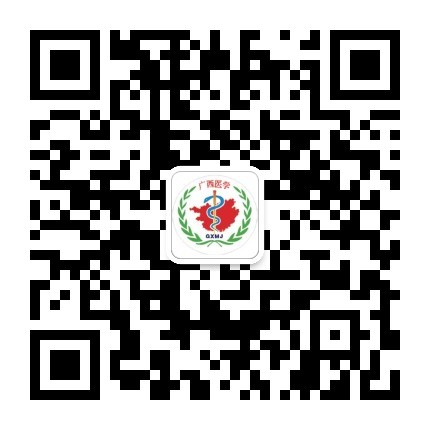目的探讨四君子汤对妊娠期糖尿病(GDM)患者的辅助治疗效果,以及对患者血清晚期糖基化终末产物受体(RAGE)、C1q肿瘤坏死因子相关蛋白3(CTRP-3)、血管生成素样蛋白(ANGPTL)2、ANGPTL4及炎症因子水平的影响。方法将120例GDM患者随机分为研究组(n=60)及对照组(n=60)。给予两组患者一般治疗及门冬胰岛素30注射液皮下注射,同时给予研究组患者服用四君子汤。比较治疗前后两组的空腹血糖、HbA1c、餐后2 h血糖(2hPBG)水平,以及血清RAGE、CTRP-3、ANGPTL2、ANGPTL4、炎症因子[白细胞介素-6(IL-6)、C反应蛋白(CRP)、肿瘤坏死因子α(TNF-α)]水平。记录两组的不良母婴结局发生率、不良反应发生率。结果治疗后,两组空腹血糖、HbA1c、2hPBG水平及血清RAGE、ANGPTL2、IL-6、CRP、TNF-α水平较治疗前下降,血清CTRP-3、ANGPTL4水平较治疗前升高,且研究组上述指标优于对照组(P<0.05)。研究组不良母婴结局的总发生率低于对照组(P<0.05), 而两组的不良反应总发生率差异无统计学意义(P>0.05)。结论在常规治疗基础上采用四君子汤辅助治疗GDM具有确切疗效及一定的安全性,其可提高患者的血糖控制效果及改善母婴结局,这可能与其可更有效地调节RAGE、CTRP-3、ANGPTL2、ANGPTL4及炎症因子的表达,从而减轻机体炎症反应及胰岛素抵抗有关。
当前位置:首页 / 四君子汤对妊娠期糖尿病患者的辅助 治疗效果及对相关细胞因子表达的影响
论著.中医药与民族医药诊疗
|
更新时间:2024-01-23
|
四君子汤对妊娠期糖尿病患者的辅助 治疗效果及对相关细胞因子表达的影响
Effect of Sijunzi Decoction for the adjuvant treatment of patients with gestational diabetes mellitus and its influence on expressions of relevant cytokines
广西医学 2023第45卷21期 页码:2602-2606
作者机构:黎华,本科,副主任技师,研究方向为免疫检验。
基金信息:广西壮族自治区中医药管理局自筹经费科研课题(GXZYA20230227);广西壮族自治区卫生健康委员会自筹经费科研课题(Z-A20230226)
- 中文简介
- 英文简介
- 参考文献
ObjectiveTo investigate the effect of Sijunzi Decoction for the adjuvant treatment of patients with gestational diabetes mellitus (GDM), and its influence on serum receptor for advanced glycation end-products (RAGE), C1q and tumor necrosis factor related protein (CTRP-3), angiopoietin like (ANGPTL)2, ANGPTL4, and inflammatory factors levels. MethodsA total of 120 GDM patients were randomly divided into study group (n=60) or control group (n=60). Patients in both groups received general therapy and subcutaneous injection of insulin aspartate 30; simultaneously, patients in the study group were administrated Sijunzi Decoction. The pre- and post-treatment fasting blood glucose, HbA1c, and 2 hour-postprandial blood glucose (2hPBG) levels, as well as serum RAGE, CTRP-3, ANGPTL2, ANGPTL4, and inflammatory factors (interleukin 6 [IL-6], C-reactive protein [CRP], tumor necrosis factor α [TNF-α]) levels were compared between the two groups. The incidence rates of adverse maternal and infant outcomes, and adverse reactions were recorded in both groups. ResultsAfter treatment, fasting blood glucose, HbA1c, and 2hPBG levels, as well as serum RAGE, ANGPTL2, IL-6, CRP, TNF-α levels were decreased as compared with before treatment, whereas serum CTRP-3 and ANGPTL4 levels were elevated as compared with before treatment, and the aforementioned indices of the study group were superior to those of the control group (P<0.05). The total incidence rate of adverse maternal and infant outcomes in the study group was lower than that in the control group (P<0.05); however, there was no statistically significant difference in the total incidence rate of adverse reactions between the two groups (P>0.05).ConclusionOn the basis of routine treatment, employing Sijunzi Decoction for the adjuvant treatment of GDM exerts definite efficacy and safety to a certain extent, and it can improve blood glucose control effect, ameliorate maternal and infant outcomes in patients. This may be related to that it can more effectively regulate expressions of RAGE, CTRP-3, ANGPTL2, ANGPTL4, and inflammatory factors, thereby reducing inflammatory response and insulin resistance of the body.
-
无




 注册
注册 忘记密码
忘记密码 忘记用户名
忘记用户名 专家账号密码找回
专家账号密码找回 下载
下载 收藏
收藏
